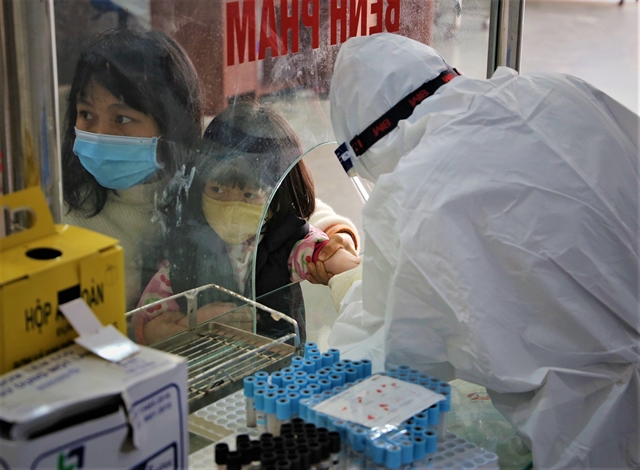 Society
Society


|
| A health worker collects specimens from a young child infected with coronavirus in the northern province of Bắc Giang. — VNA/VNS Photo |
HÀ NỘI — Việt Nam is exercising caution in consideration of COVID-19 vaccinations for children aged 5-11 years, Minister of Health Nguyễn Thanh Long told local media.
The health ministry has submitted a tentative inoculation plan to the Government awaiting approval, however, Long stressed the World Health Organisation (WHO) has not issued official guidance for vaccinations for children aged 5-11 years yet.
“Therefore, the Ministry of Health works very carefully, scientifically and objectively on the basis of reference to inoculation programmes of all countries,” he said, adding that the ministry was in close coordination with the WHO in the matter.
The health minister also expressed concerns about public acceptance, so the Prime Minister has ordered the health ministry to conduct a survey regarding vaccinations for young children.
He admitted getting the shots to this age group would be much more difficult compared to adults.
The other issue is supply but the health ministry is already in talks with various manufacturers and suppliers, and is eyeing Pfizer/BioNTech COVID-19 vaccine for children aged 5 to 11, the same one being offered to eligible children ages 12 to 17 in the country.
“This is a very important issue. We can’t rush things, and we have to take concrete steps to ensure maximum safety for children,” Long said.
To date, Việt Nam has administered over 14 million COVID-19 vaccine shots for children in the 12-17 age group, with first-dose coverage hitting 90 per cent and second-dose coverage reaching 68.5 per cent.
Some countries have commenced vaccinating young children against COVID-19, such as the United States, Canada, Brazil, many European countries, Australia, United Arab Emirates, Israel, Malaysia, (with paediatric doses of Pfizer/BioNTech vaccines); China, Cambodia, Indonesia, Argentina, Columbia, (using China’s Sinovac and Sinopharm vaccines); and Cuba and Venezuela (with Cuba’s Sobenara 2 vaccines).— VNS




